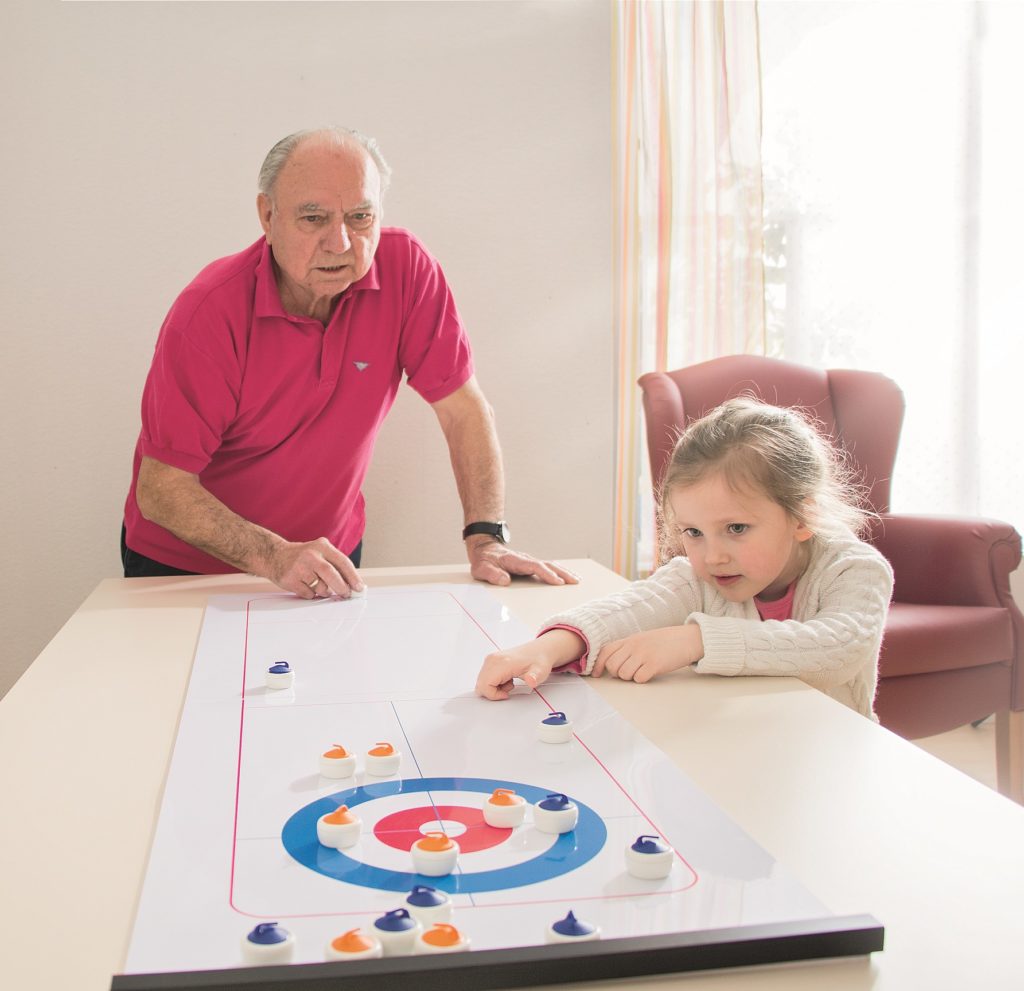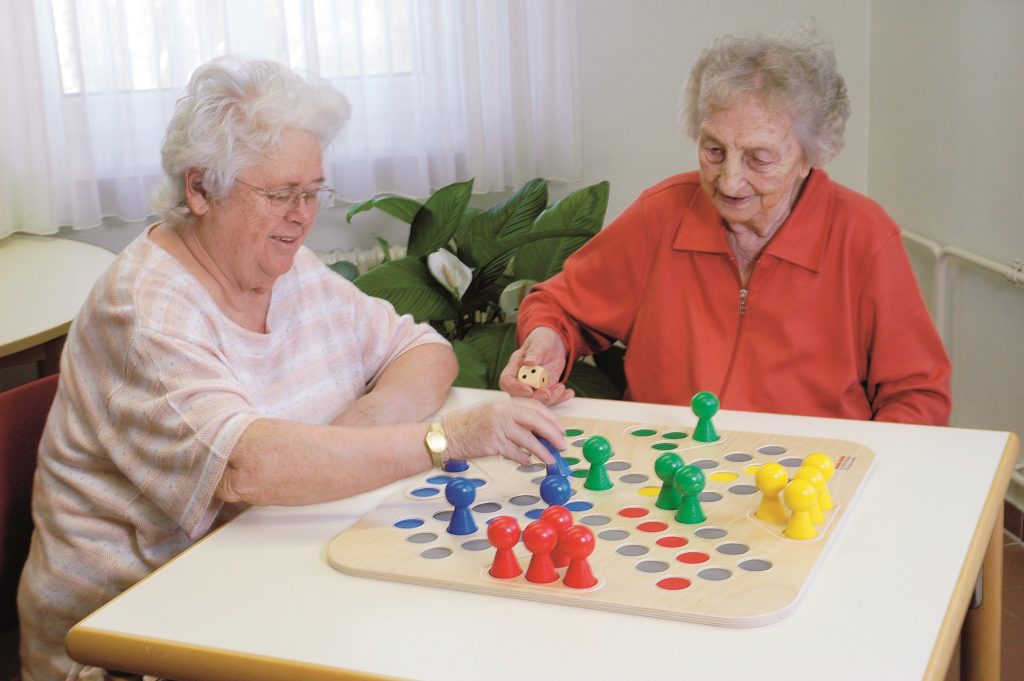Activities and games adapted to Alzheimer’s disease and dementia: tips and advice
Complete guide to activities and games suitable for Alzheimer’s disease and dementia: tips and advice for a fulfilling daily life
Alzheimer’s disease and dementia-related cognitive impairment can pose a significant challenge for sufferers and their caregivers. Finding activities and games adapted to the specific needs of these people then becomes an issue, in order to maintain their quality of life and stimulate their cognitive abilities. Ludimage offers you a complete guide on the most suitable activities and games for people with Alzheimer’s or dementia, as well as valuable advice to facilitate their implementation.
The benefits of activities and games for people with Alzheimer’s disease and dementia
Before presenting the various adapted activities and games, let’s understand why it is so important to offer them to people with Alzheimer’s or dementia:
- Maintenance of cognitive skills : Regular participation in activities and games stimulates memory, attention, language and other cognitive functions, thus slowing down cognitive decline.
- Improved Mood and Well-Being : Participating in fun and playful activities helps reduce anxiety, depression, and apathy often associated with dementia.
- Strengthening Social Bonds : Sharing quality time with loved ones and caregivers helps maintain and strengthen emotional relationships, which are essential to people with Alzheimer’s or dementia feeling safe and well-being.
- Sensory stimulation : certain activities and games appeal to the senses (sight, touch, hearing), awakening and calming people with cognitive disorders.
Activities and games adapted to Alzheimer’s and dementia: our suggestions
Creative and artistic activities
- Painting and drawing: Get your paintbrushes, colored pencils, markers and paper and let your imagination run wild. You don’t have to be a talented artist to enjoy the benefits of this activity!
- Collages: Cut out pictures from magazines, newspapers, or print them from the internet, then stitch them together to create original, personalized paintings.
- Modeling: Use modeling clay or clay to sculpt various shapes and objects. This activity challenges both fine motor skills and the imagination.
Board and card games
Games and activities adapted to Alzheimer’s disease are a tool to help people with this disease maintain their cognitive abilities and their quality of life. Games can be used to stimulate memory, attention and concentration, as well as to encourage social interaction. On Ludimage you will find several types of games suitable for people with Alzheimer’s or dementia:
- Motor skills games: to improve the coordination of movements and to strengthen the muscles
- Sensory games: to stimulate the senses and provide a pleasant distraction.
- Giant games: designed to be easily playable despite a decline in fine motor skills or sensory acuity
- Empathy stuffed animals and dolls: designed to promote the expression of empathy in people with Alzheimer’s, to bring them calm and comfort too.

Physical activities and sports
The practice of regular physical activity is beneficial for the physical and mental health of people with Alzheimer’s or dementia.
- Walk: Walking outside, in nature or in an urban park, is a great way to relax and enjoy the benefits of fresh air and sunshine.
- Soft gymnastics: yoga, tai chi or stretching are all activities that gently work on flexibility, balance and coordination.
- Dance : choose music that appeals to the person with Alzheimer’s or dementia and get into an impromptu dance! Dance is a fun and stimulating activity, both for the body and for the mind.
Tips and advice for setting up adapted activities and games
In order to guarantee the success and well-being of the person with Alzheimer’s or dementia when practicing activities and games, here are some tips to follow:
- Choose suitable activities: take into account the tastes, interests and abilities of the person concerned to select activities and games that suit them.
- Create a safe environment: Make sure to eliminate potential hazards, such as sharp objects or cluttered spaces, and choose a quiet and comfortable place to perform activities.
- Encourage and Support: Be patient and supportive, and don’t hesitate to offer help if needed. Show empathy and understanding for the difficulties faced by the person with Alzheimer’s or dementia.
- Vary Activities: Alternate between intellectual, creative, physical, and social activities to provide complete and balanced stimulation.
- Adapt the level of difficulty: modify the rules or the material used to make the games accessible and avoid unnecessary frustration and failure.
By implementing these tips and regularly offering activities and games suitable for people with Alzheimer’s disease or dementia, you will help improve their quality of life and preserve their cognitive abilities. Do not hesitate to innovate and adapt according to the needs and desires of each to create moments of sharing and fulfillment. For more advice, contact Ludimage’s team of experts!

